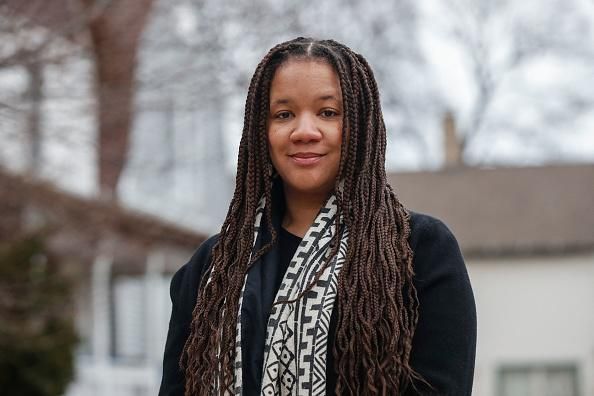Why Evanston approving reparations for Black residents is so groundbreaking
For as long as I could remember, reparations for Black Americans have always been the topic of commentary within the community. It's even the topic of conversations amongst my friends and me when speaking on our life experiences.
Now, it's becoming a reality.
According to the Associated Press, Evanston, a suburb of Chicago, Illinois, is the first U.S. city to make reparations for Black residents due to discrimination and the lingering effects of slavery.
How remarkable!
The Evanston City Council voted 8-1 to distribute $400,000 in housing assistance to Black families. Each household that qualifies will receive $25,000. The money received could be used for interest, late penalties on properties within the city, home repairs, or a down payment on a property.
The program is also funded by a 3 per cent tax on the newly legalized marijuana sales and donations.
Additionally, the city also has plans to distribute $10 million over a decade to Black residents. This is great because Black residents may also be eligible to apply in mid-summer, which is very soon.
Alderman Cicely Fleming, the only person in opposition to the plan, has stated that she supports reparations. Despite supporting the idea, she feels that the City Council is debating on a housing plan that they just so happen to call reparations.
Fleming also believes that people should have the right to set the terms for how their grievances are used. She also described the program as paternalistic, insinuating that it could make people think that Black people don't have financial literacy.
"Rather than reparations dictating to Black people what they need and how they will receive it, we need to listen more to the people," she said at the council meeting.
"There is no autonomy for the community that was harmed, instead of cash payments or other options that respect the humanity and self-determination of Black people, and allow them to determine how best to repair themselves, the housing program is restrictive."
I understand the reasoning behind her sentiments, but it's a significant first step.
Furthermore, other organizations and communities that are considering reparations are Providence, Rhode Island, California, Asheville, North Carolina, and well-respected colleges like Georgetown University in Washington, D.C.
These efforts, which have been in the works for years, have gained even more traction in the wake of systemic racism and the unfortunate deaths of Breonna Taylor, George Floyd, Ahmaud Arbery, and many others at the hands of police officers.
Overall, I believe this is a step in a positive direction for communities and the nation, although we still have a very long way to go.
Have you got something to say? Want to share your thoughts and experiences with the world? Submit a post to Conversations today.
